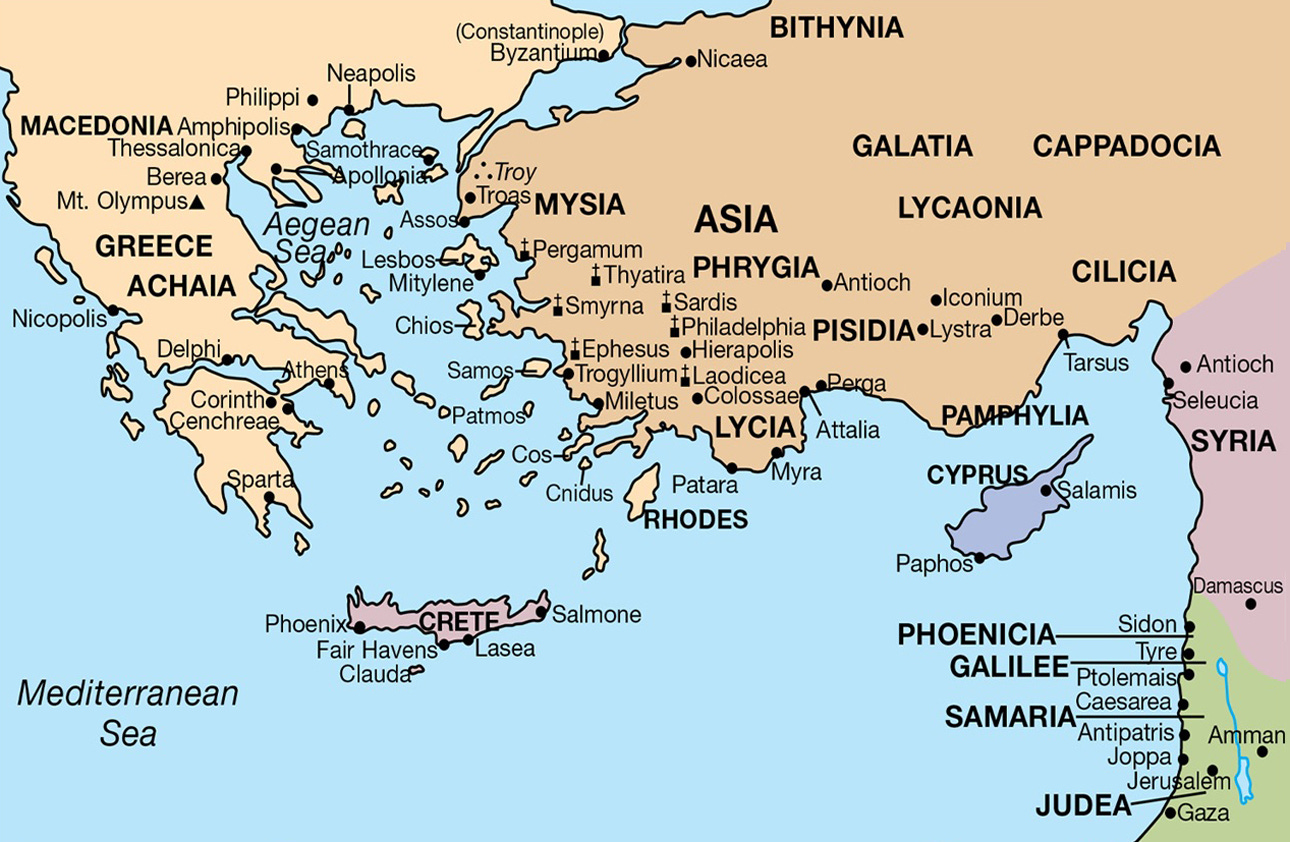John to the seven churches that are in Asia: Grace to you and peace from Him who is and who was and who is to come, and from the Seven Spirits who are before His throne, and from Jesus Christ the faithful witness, the firstborn of the dead, and the ruler of kings on earth. To Him who loves us and has freed us from our sins by His blood and made us a kingdom, priests to His God and Father, to Him be glory and dominion forever and ever. Amen. Revelation 1:4-6
SEVEN CHURCHES
If you recall, in Chapter Five, we looked at a historical quote from John Foxe, who wrote:
“The ‘beloved disciple’ was brother to James the Great. The churches of Smyrna, Pergamos, Sardis, Philadelphia, Laodicea, and Thyatira, were founded by him. From Ephesus he was ordered to be sent to Rome, where it is affirmed he was cast into a cauldron of boiling oil. He escaped by miracle, without injury. Domitian afterwards banished him to the Isle of Patmos, where he wrote the Book of Revelation. Nerva, successor of Domitian, recalled him. He was the only apostle who escaped a violent death.” Foxe’s Book of Martyrs, Hendrickson Publishers, Peabody, MA; 2004
According to Mr. Foxe, while ministering in Ephesus at the time of his arrest, John had planted the six other churches mentioned in Revelation 1:11. Since the second and third chapters of Revelation deal with these seven churches individually, we’ll examine them more particularly at that time. Nevertheless, we should recognize that the area of these churches are what is known as modern Turkey today.
John’s greeting to them, “the seven churches in Asia,” however, should be curious to you and me as Bible students. Why these seven churches? Why not Jerusalem, or Antioch, or perhaps even Rome? As seven, biblically speaking, represents the number of completion, these seven churches, Ephesus, Smyrna, Pergamum, Thyatira, Sardis, Philadelphia, and Laodicea, paint a complete portrait of the church at large, the church immortal and invisible, and the church eternal. Yes, they were actual historical churches, existing during John’s banishment to Patmos; yet, their individual characteristics, as we will see in chapters two and three, present a true picture for us in the church’s faithfulness and faults, its blessings and rebukes, and its works and Christ’s warnings to them.
Although the seven churches have its problems and shortcomings, we are encouraged because the greeting is not merely from John. He is Christ’s servant and messenger. The greeting comes from the tri-une God, with a powerful benediction which exalts Christ Jesus in the hearts and the minds of the readers and hearers.

SOOTHING WORDS
While not all the churches in Asia Minor had received a letter from an apostle specifically addressed to them, as the epistles were copied, they were distributed to neighboring churches. “Grace to you and peace” was a typical greeting from those writing letters to the churches, as it was for Paul when he wrote to Ephesus…


